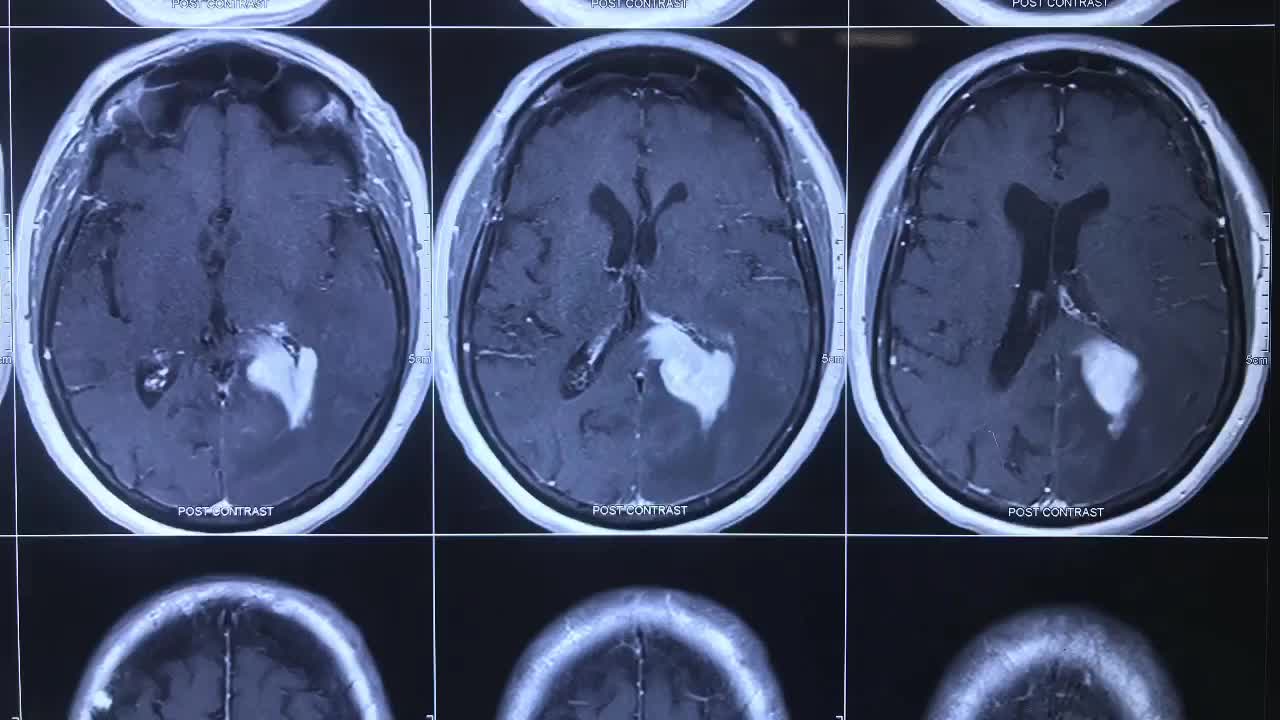A cancerous or non-cancerous mass or growth of abnormal cells in the brain. Tumours can start in the brain, or cancer elsewhere in the body can spread to the brain. Symptoms include new or increasingly strong headaches, blurred vision, loss of balance, confusion and seizures. In some cases, there may be no symptoms. Researchers know brain tumors develop when certain genes on the chromosomes of a cell are damaged and no longer function properly, but they aren't sure why this happens. Your DNA in your chromosomes tells cells throughout your body what to do — it tells them when to grow, when to divide or multiply and/or when to die. Brain tumors are dangerous because they can put pressure on healthy parts of the brain or spread into those areas. Some brain tumors can also be cancerous or become cancerous. They can cause problems if they block the flow of fluid around the brain, which can lead to an increase in pressure inside the skull.
Brain tumors are more common in children and older adults, although people of any age can develop a brain tumor. Gender. In general, men are more likely than women to develop a brain tumor. However, some specific types of brain tumors, such as meningioma, are more common in women.
In general, tumors occur when cells divide and grow excessively in the body. Normally, the body controls cell growth and division. New cells are created to replace older ones or to perform new functions. Cells that are damaged or no longer needed die to make room for healthy replacements. Having brain surgery might sound like a frightening procedure, but it is quite safe. Doctors who carry out these surgeries are very skilled specialists. You can share your concerns and worries with your doctors and cancer nurse specialist. They will be able to tell you what will happen during the operation.
